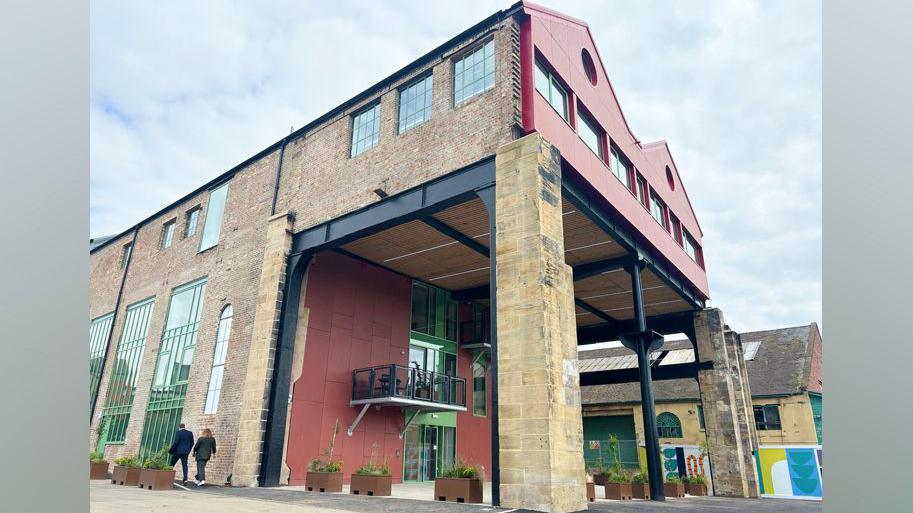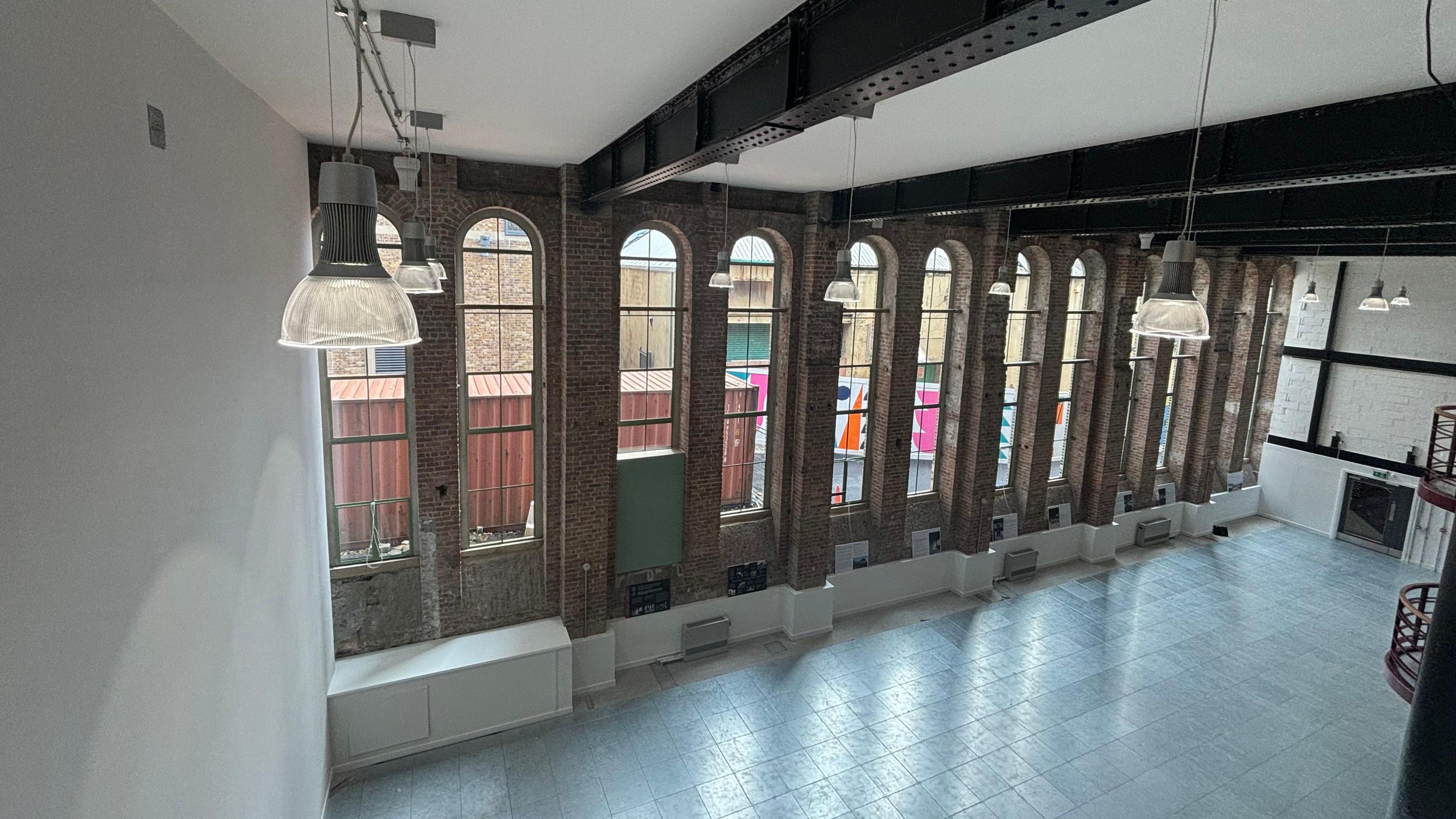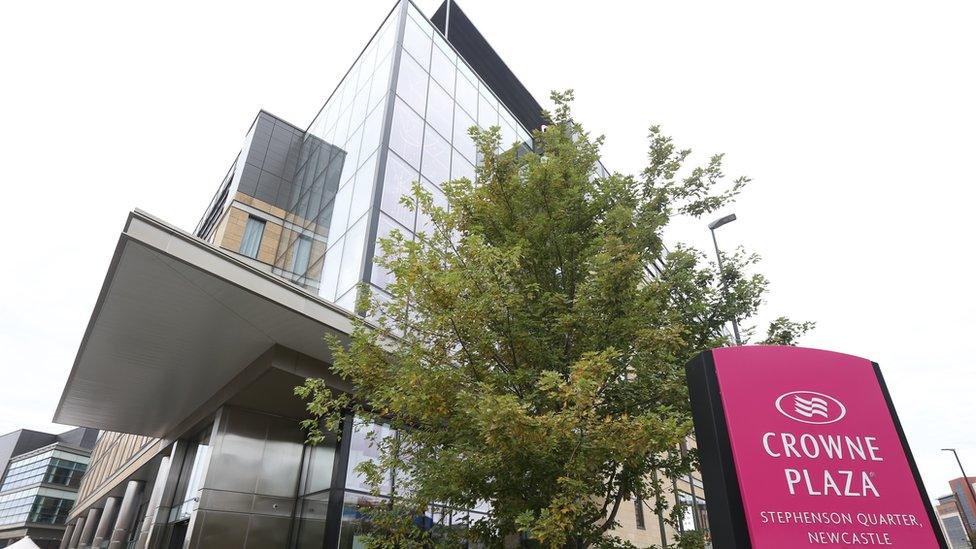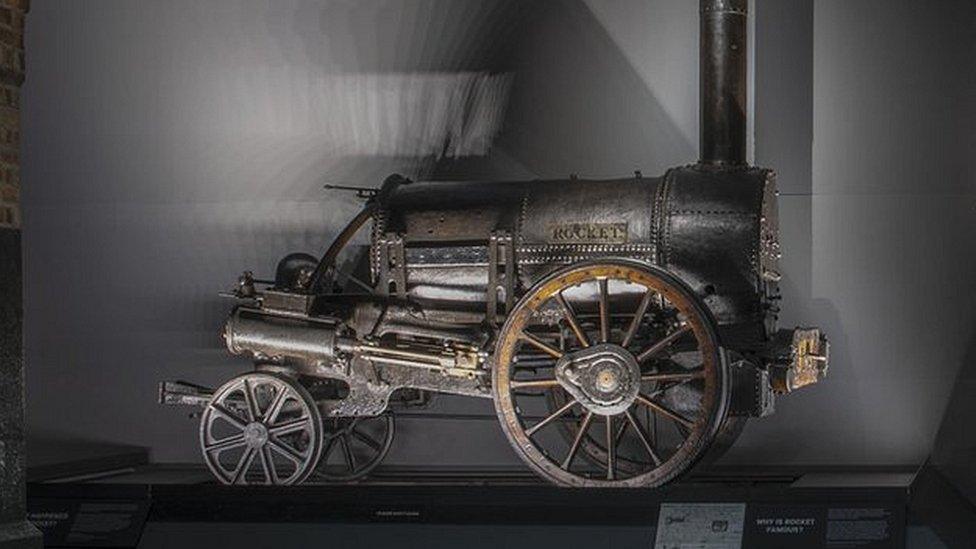Stephenson workshop repurposed as business centre

The Pattern Shop is where Robert Stephenson built and exported steam engines all around the world
- Published
A pandemic-delayed conversion of a Victorian engineering workshop will inspire creativity, a developer has said.
The Pattern Shop in Newcastle is where Robert Stephenson built and exported steam engines all around the world in the late-1800s.
The Grade II listed structure fell empty in 2008 and was "slowly becoming derelict", Newcastle City Council said, before plans were submitted to turn it into a business centre.
People are able to visit the completed £9m regeneration on Saturday evening, which features original fittings such as cast iron pillars in the engine hall.
Stephenson's most famous invention, the Rocket, was the first modern steam locomotive.
The Pattern Shop sits on 4.3 acres of brownfield land within the Stephenson Quarter, behind Central Station.
Developers converted the building with an emphasis on retaining as many original features as possible.

The original large arched windows were preserved
Newcastle City Council said the completion was the culmination of a "difficult two-year period which overcame a pandemic, a change of contractor when the original contractor went bust, and rampant inflation which pushed the cost of building materials through the roof".
Heritage expert Lauren Dunbar, from the Common Room, said working in a historical building was "inspiring".
"I think working somewhere like this really adds weight to what you can create and what you can do," she said.
The Pattern Shop is the first in a collection of planned buildings within the Stephenson Quarter called Founders Place, external.
Members of the public can join a tour of the building on Saturday between 18:30 and 22:00 BST, as part of the late shows series, external.
Follow BBC Newcastle on X (formerly Twitter), external, Facebook, external and Instagram, external. Send your story ideas to northeastandcumbria@bbc.co.uk
- Published7 October 2022

- Published18 November 2022
